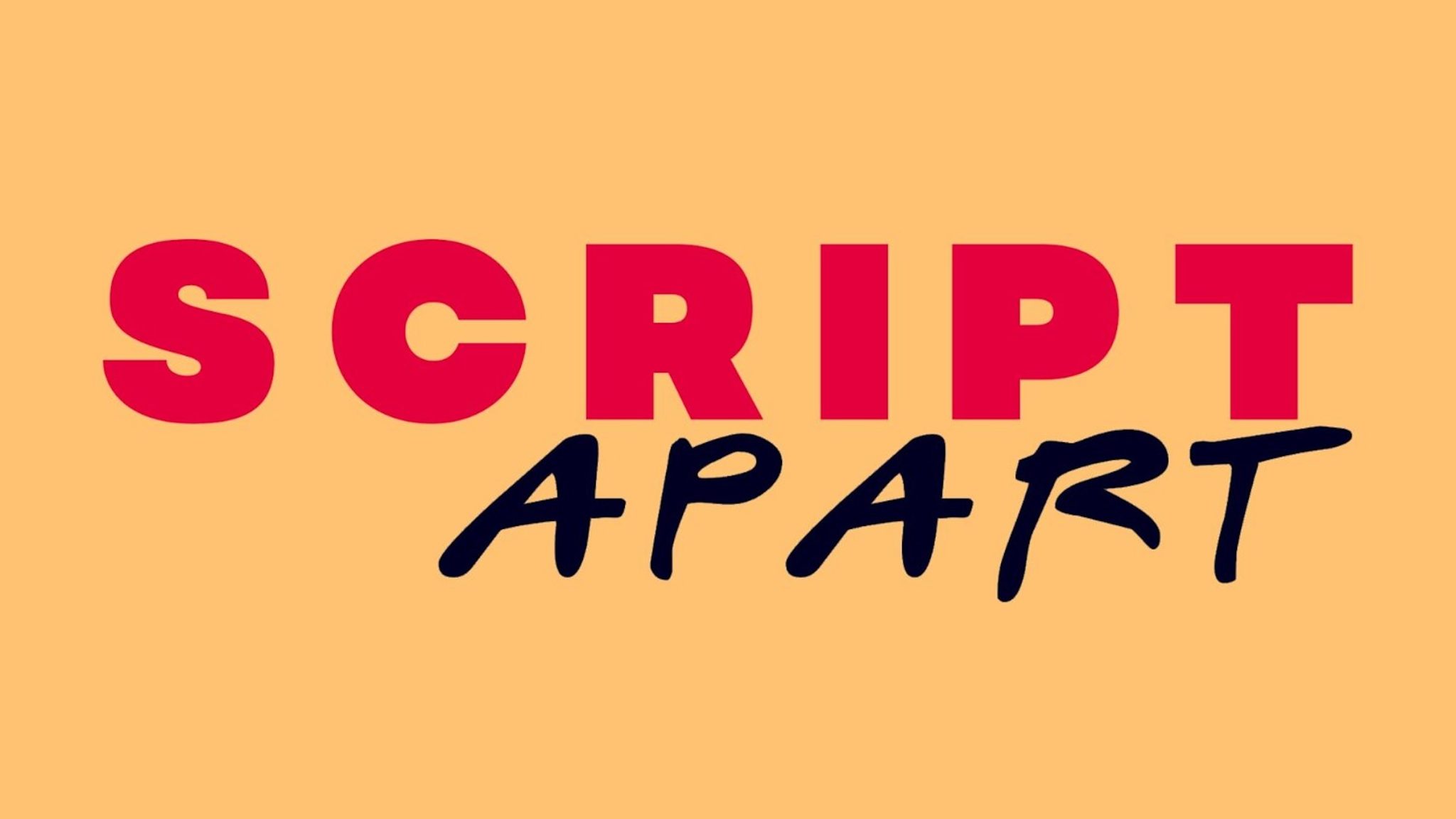An Interview with ScreenCraft Semifinalist Nick Watson

Nick is a TV Comedy and Animation writer originally from Australia, where he wrote for 3 seasons of late-night comedy and taught screenwriting at the University of Melbourne. Since moving to LA he has worked as a Creative Executive, was a freelance writer for Hasbro Studios’ Littlest Pet Shop: A World of Our Own, and most recently wrote on Season 2 of TBS’ animated comedy series Final Space.
Nick was a semifinalist in the 2014 ScreenCraft Pilot Launch competition and a quarterfinalist for the 2016 ScreenCraft Fellowship. We had the chance to catch up with him and talk about how his career has grown since placing in our contests.
What's your background and how did you get into writing? Did you always want to be a writer?
I'm originally from a little country town in Australia called Shepparton, and I ended up moving to the much bigger and more interesting city of Melbourne to study Clinical Psychology. It was fascinating, but I pretty quickly realized I didn't want to spend my life doing that, so I ended up taking a second major in Creative Writing. I loved it so much that I went on to do a Masters Degree in Screenwriting, and even went back to my alma mater to teach screenwriting to undergraduates after I was done. When I look back, I realized I had been writing my whole life - from attempting to scribble fantasy novels in the back of my school books, to getting my short stories published in my school yearbook and winning awards for them. It had been under my nose all along, but I had never given myself permission to pursue it as the Plan-A for my life and my career, always thinking I had to get a 'real job'. When I threw that notion away and put my all into being a writer, that's when things started to happen for me.
Can you walk us through the process of how you relocated and eventually signed with your agent?
I actually moved to Vancouver, Canada first, as I had studied at a university there on exchange and knew there was a thriving film and TV industry going on. It helped that I had friends there already and knew the city - I was a little nervous to make the jump right into L.A. I got to work in production on a bunch of cool TV shows and films and see how the sausage was made, but I pretty quickly realized there were very few opportunities for writers up there. So I moved to LA, kept working on shows, writing, and networking, and things slowly fell into place when one of my scripts got a lot of attention from being on an industry list called The Bitch List. I started taking meetings at networks and studios around town, landed my first freelance writing gig with Hasbro, and parlayed that into signing with an agent. That was about a year and a half after I arrived in LA, and it was another year again before I landed that coveted full-time writing job. Even then, I feel like my journey was a fairly rapid one - it's not uncommon for it to take 5-10 years to establish oneself and become a working writer in LA. I think anyone who moves out here with that goal should be aware that it's a process, and it will take time, effort, sacrifice, and persistence to get there.
Did you find screenwriting contests such as ScreenCraft's to be a valuable resource in that process?
When I was first starting out and knew nobody in the industry - especially when I was living outside the U.S. - I saw screenwriting competitions like ScreenCraft's Pilot Launch and Fellowship as amazing opportunities to get noticed and get access. Not only did they give you motivation and a deadline to finish your work and make it the best it can be, but placing in them gave you a huge boost of confidence that you were on the right track with your writing. You could even win prizes and get attention from people in the industry who were scouting for undiscovered talent. I made some great connections through the competitions I entered and putting them on my resume even helped me land my first manager.
Most writers have to find the time, energy and passion to still write while working full-time jobs. Do you have a regimen that works for you?
It can be really tough. Even when you're working in a writers' room full time you're using that creative energy and writing all day, so you don't really feel like doing it again for another 3-4 hours when you get home and are working on your own stuff. For me, setting an appointment to write and putting it in my calendar is fairly effective. I treat it like I would any other task like a doctor's appointment or networking drinks. You show up, do your work for a set amount of time, and then you can relax - rather than it being a constant, amorphous pressure looming over you to churn out pages here and there amidst other responsibilities.
How many years or projects did you feel you had to put in before you felt your projects were at a sellable level? Many writers want to sell the final draft of their first project.
I recently went back and re-read the first screenplay I ever wrote when I was 14. It was terrible, over-directed, and riddled with clichés. Then I read some of the stuff I wrote while I was at college, and a few of my earlier samples, and each one got exponentially better the more I wrote. I don't think this process ever really stops. A lot of people probably don't realize just how long it takes to actually get 'good', and that's just to be on an even playing field with all of the other working writers out there. If anyone is out there thinking that screenwriting is some kind of get-rich-quick scheme where you write one script, sell it, and make enough money to live off or suddenly get skyrocketed into success and a stable career, they should probably choose another industry. There is no such thing as resting on your laurels as a writer - you have to keep turning out new material to stay relevant and to keep working.
Many writers have a misconception about simply sitting down and having great writing come forth from their fingertips. Do you have a specific process or method where you work your material up to the professional level? Outlines? Treatments? Beat sheets?
I use pretty much the same process we would use in the writers' room when working on my own material. I start with a brainstorm or 'blue-skying' of ideas, concepts, characters, and worlds that excite me. Things with inherent conflict, contradiction, juxtaposition and irony tend to work best for comedy. I let that percolate for a while and just write down any bits and pieces that come into my head. Occasionally I'll turn this into a one or two-pager, especially If I'm planning to pitch the idea to anyone. But once I feel like I have enough to go on and I'm ready to write the script, I turn those big-picture ideas into a rough beat sheet. I figure out where the story/character starts, where it's going to end up, and the major act breaks along the way. Then I start working my way down to the major beats in the story, and the smaller beats in each act that build to those act breaks. From there I can put it into an outline and start throwing in scene headings and quick descriptions of what happens in each one. From the outline, I'll then go in scene-by-scene and write the first draft. There's a LOT of work that goes on before you ever sit down and type 'Fade In'. I would recommend against just opening up Final Draft, starting to write, and seeing what happens - not only will you end up with a weak, aimless story, but it's just not how things are done when you're a working writer, so it's better to start building those habits now and learn the process.
From a craft standpoint, what do you feel is the hardest part about getting a screenplay where it needs to be?
Understanding that it has to be bad before it can be good. I think a lot of writers want the words to be perfect as they come out of them and onto the page, but that expectation will hold you back more than anything. If you're constantly criticizing and editing yourself as you go, you'll never get anything done. The first few drafts are going to be rough, but just get it down on the page - you can't start making something better if it doesn't exist first. Then continuously get feedback and rewrite until it's at a level that you're happy with.
From a career standpoint, were there any aspects that were much harder than you realized? Anything that was easier?
Turning 'jobs' into a career is probably the hardest thing about being a writer. When you first start out there's a lot of instability, not knowing if you're going to have work for the rest of the year after a show wraps for the season, or not knowing if your show is going to get picked up again next year. It's not as simple as just getting staffed and now you've 'made it.'
As for something easier - the actual process of being in a writers' room and breaking stories was a lot more fun and less nerve-wracking and high-pressure than I expected. That differs from show to show, but I had a great experience and was thrilled that it was something I was actually getting paid to do.
Even for a writer as successful as you, surely you have had to face rejection at some point. Any advice for writers dealing with the discouragement that comes with rejection?
Rejection is a part of life, and it's definitely a part of the industry. A lot of it will be 'soft' rejection where you just don't get a reply to an email, or you don't get a meeting, or they never got around to reading your script. Being told 'no' directly is much rarer, and it's usually couched in a compliment to let you down softly - like missing out on a staffing job after a showrunner meeting or having another pitch chosen over yours. I would say that a lot of the time, it's less about you, and more to do with factors outside of your control - they had to hire a network exec's recommendation, or they had 20 great pitches and could only choose one. The industry is such a numbers game, even the big-name writers at the top of their game don't get their scripts picked up to pilot, or have their pilots picked up to series. There will never be a point where you don't face some sort of rejection, so the key is just to be persistent. If you keep trying and don't give up, things will happen for you eventually.
If you could go back 5-10 years and give yourself one craft or career tip, what would it be?
Write more. It doesn't matter if it sucks. The simple act of getting the ideas out of your head and onto the page will teach you to be a better writer and learn from your mistakes.
What's next for you?
I'd like to continue to write on staff for comedy and animation shows for a little while, then start to develop my own projects and try to get one of those up. My goal is to create and run my own show, and eventually start my own production company where I can shepherd a number of projects that I believe in, and be a creative producer on those.
Favorite movie you've ever seen?
Whiplash. It's so brilliantly put together - the performances, the sound, the editing, the story. It blew me away.
Best script you've ever read?
Tough one. It's hard to go past the pilot of Community by Dan Harmon. He has a way of writing that seems so simple and effortless, but underneath the surface, there are so many gears turning - story, structure, character, theme - to create something incredible and hilarious.
Favorite book?
Do Androids Dream of Electric Sheep? by Phillip K. Dick - the book that Bladerunner is based off.
Best music to listen to while writing?
I usually listen to the soundtrack from a movie or show that's similar to what I'm writing, for the atmosphere and inspiration. Otherwise, just something that's relaxing that can drown out any distractions, like soft jazz, classical, or 'chillstep'. I tend to find lyrics distracting when I'm writing.
For all the latest ScreenCraft news and updates, follow us on Twitter, Facebook, and Instagram.
Get Our Screenwriting Newsletter!
Get weekly writing inspiration delivered to your inbox - including industry news, popular articles, and more!




























